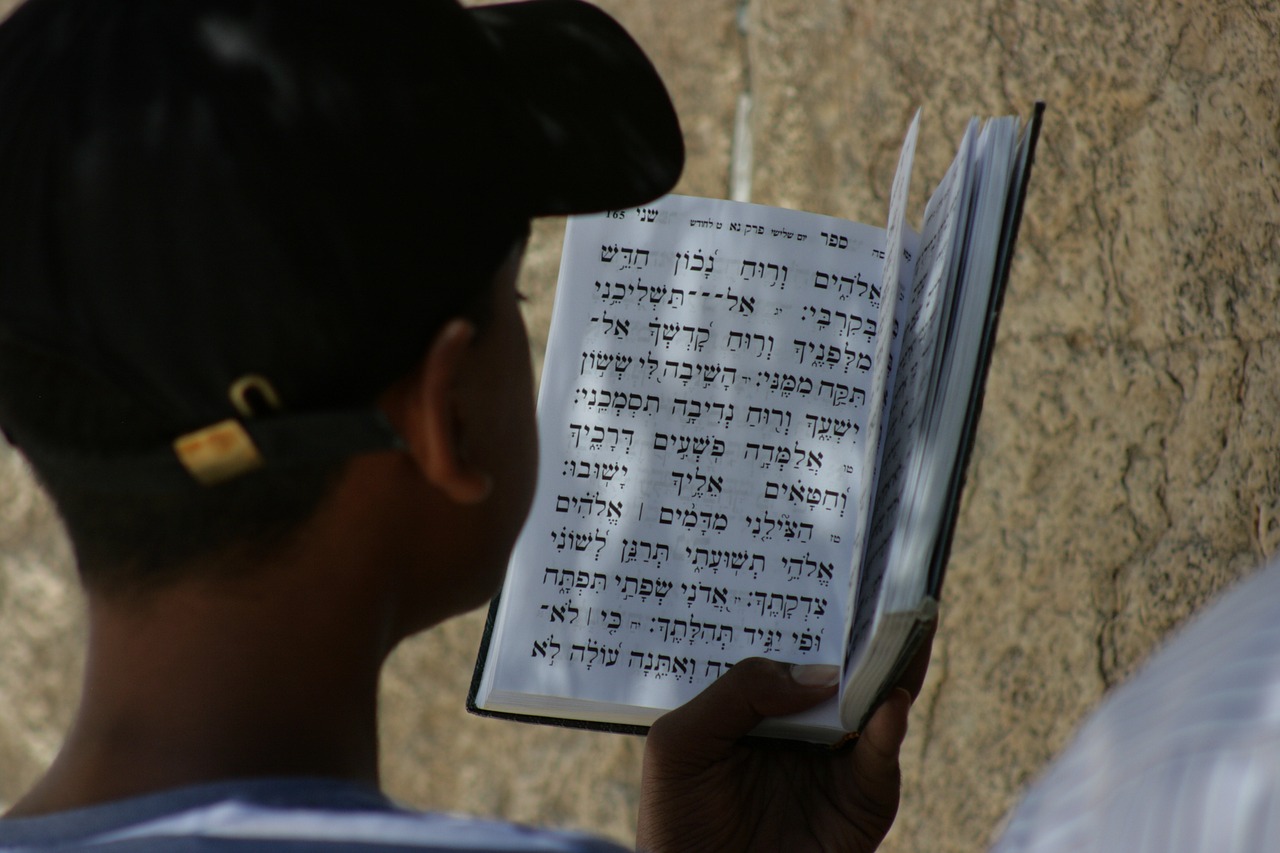Chana’s is the story of one woman’s prayer. That a woman should be recognized as a role model for prayer is interesting given that, in terms of formal prayer, men have more obligations than women. Women are required to pray once a day, but can do so on their own and in their own words. Men pray three times a day from the prayer book (siddur) and are responsible for other related mitzvot. A man’s involvement in prayer is far more regimented and public, yet the sages teach us that many of the halachot (laws) of prayer are derived from Chana – a woman.
Chana lived in the era before the Temple was built in Jerusalem. She was married to Elkanah, who also had a second wife, Penina. The Torah tells of Chana that Hashem had “closed off her womb.” Penina, meanwhile, had seven children. Chana’s anguish at not having children had to do not only with her own yearning to have a family, but with her desire to serve G-d by dedicating her offspring to Him.
We are told that while approaching Hashem and praying for a child, Chana examined each part of her body to confirm she was using it fully for Divine service. On concluding that all aspects of her being – apart from her reproductive organs – were fully utilized, she asked Hashem to make this last area productive: “Hashem, Master of Legions, if you take note of the suffering of your maidservant, and You remember me, and do not forget your maidservant, and give your maidservant male offspring, then I shall give to Hashem all the days of his life…” (I Samuel 1:11). In response to Chana’s entreaty from her heart, Hashem blessed Chana with a son Samuel (I Samuel 1:20), who would become a prophet compared to Moses and Aaron in greatness.
The details of Chana’s prayer as well as her way of thanking G-d for a child (see I Samuel 2:1-10), teach us about the laws and philosophy of approaching the Divine. In addition, since many of the halachot of prayer are learned from Chana, we understand that a woman’s prayer is as important as a man’s. Chana’s example indicates that, contrary to current misperceptions, different obligations between men and women in prayer do not indicate women’s inferiority.
It is written that Chana spoke from her heart (I Samuel 1:13), and from this we learn of our obligation to pray with focus and intention. In addition, when Chana prayed, her lips moved, but her voice was not heard. From this, our sages tell us, comes our obligation to articulate our prayers, pronouncing each word clearly, but not too loudly. (We also learn from Chana, that we are not allowed to pray, when intoxicated.)
Beyond Chana’s influence on the halacha related to prayer, we attribute to her the foundation of the eighteen separate blessings in the Shemoneh Esrei (the silent prayer for morning, afternoon and evening). Chana forged such a unique connection to Hashem through prayer that she became a role model for future generations, despite the fact that, as a woman, she was not even obligated in this area.
Chana teaches us that devotion to G-d helps us to rise above perceived limitations in life. Certainly, we come into the world with parents, talents, resources and life circumstances, but if we are sincere in our divine service, we may well receive the tools necessary to accomplish our most meaningful goals. Through prayer, we access our deepest needs and through this experience we become profoundly connected to Hashem. Chana gives us the formula for this spiritual journey. She inspires us with the courage to inventory every aspect of ourselves in order to maximize our potential.
Chana’s prayer added a new dimension to our understanding of the relationship between G-d and the Jewish people. Chana asked for a personal blessing so that she might more fully serve G-d. Her joy at bearing a child expressed not only her personal thanks to Hashem, but her gratitude and wonder at His total mastery of Creation. Chana harnessed her own joy as a tool for praise. Rather than restricting the blessing she had received, she associated it with a greater sense of good that is provided only by G-d. the source of Chana’s contribution lies in her awareness of G-d’s existence in the life of every Jew. Through Chana we understand that when G-d blesses just one of us, He is in essence blessing us all.
Our sages tell us that Chana’s prayer is prophetic, inasmuch as it describes not only the history, but the future of the Jewish people, when the Messiah will redeem all of Israel. Chana teaches us to broaden the scope of our personal achievements, to connect spiritually to our common Divine source and to liberate ourselves from the pressures of contemporary life by accessing the eternal energy of Torah. As Jews, we are each capable of achieving this high level, by focusing on the pervasiveness of G-d in our lives for all time.
Questions and comments are welcome. Please email [email protected].
Leah Kohn is the Director of the Jewish Renaissance Center, an institute of Torah learning for women located in New York City. Courses are offered at beginner and advanced levels, on a non-matriculated basis. In addition, the JRC sponsors special events and full days of learning. Intensive weeks of learning take place twice a year. For information, email [email protected] or visit the JRC website: www.jewishrenaissance.org. By telephone: 1 (888) CLASSES.
Women in Judaism, Copyright (c) 1999 by Mrs. Leah Kohn and Project Genesis, Inc.


